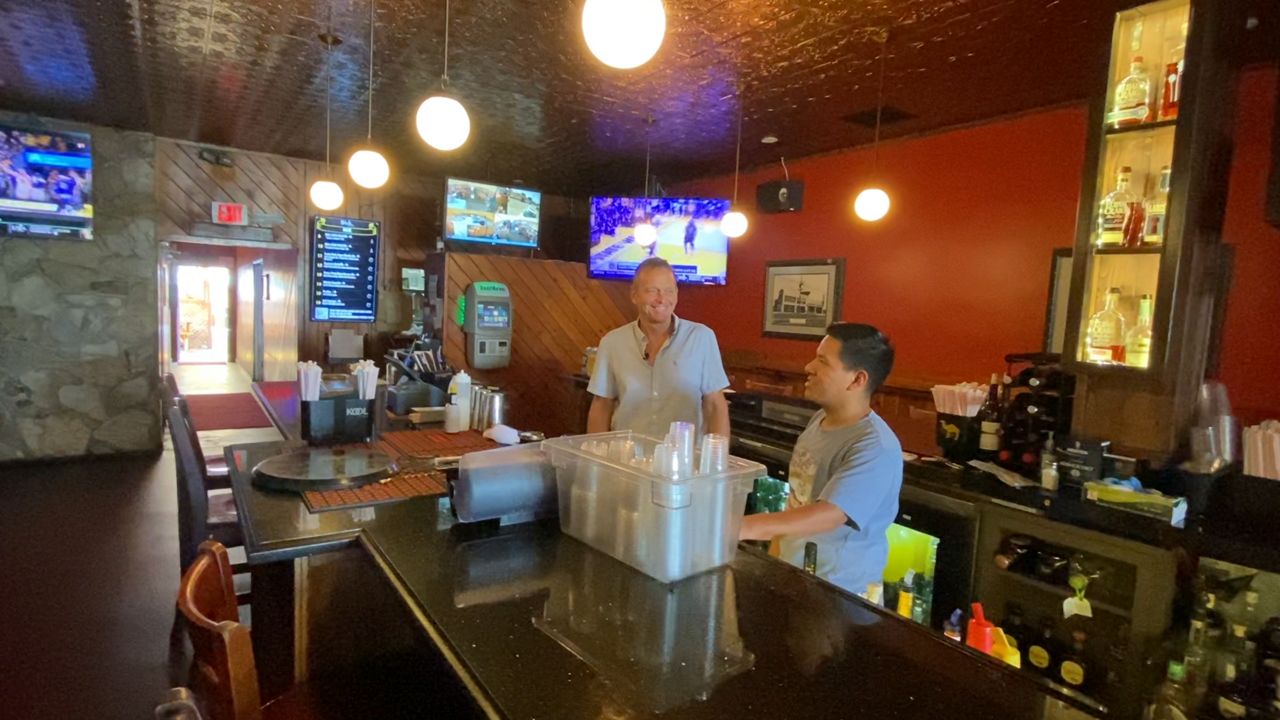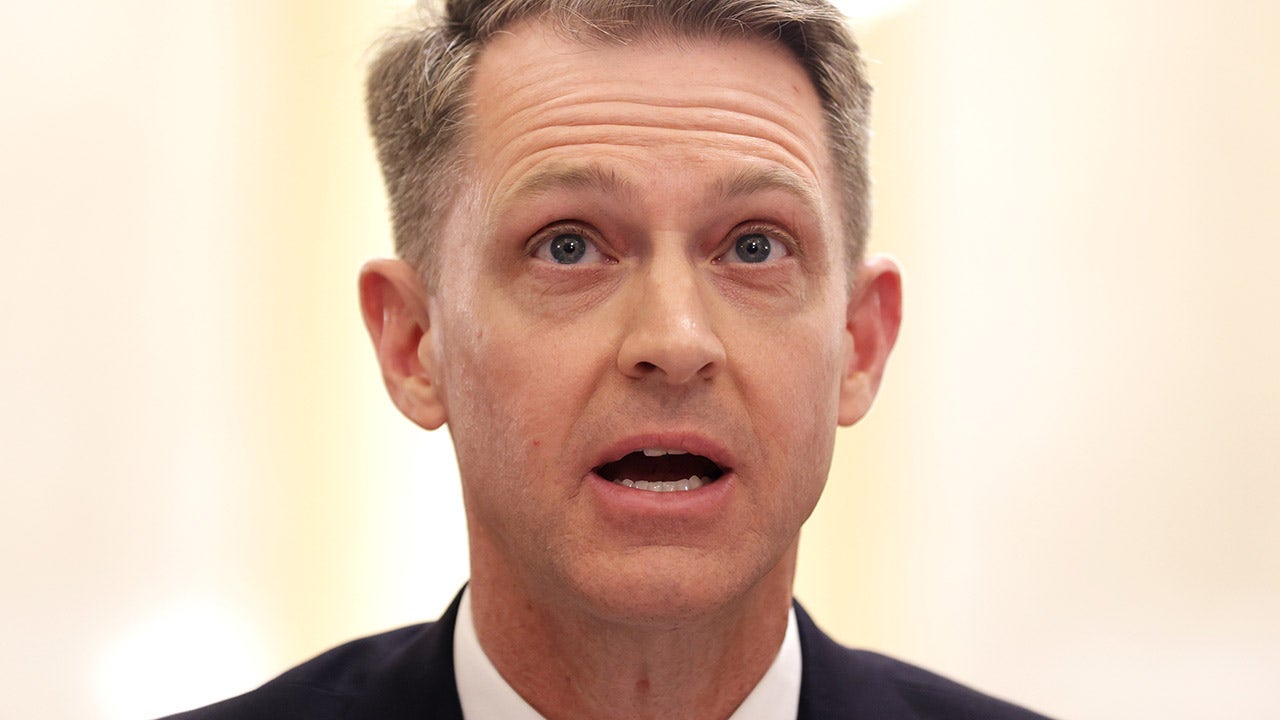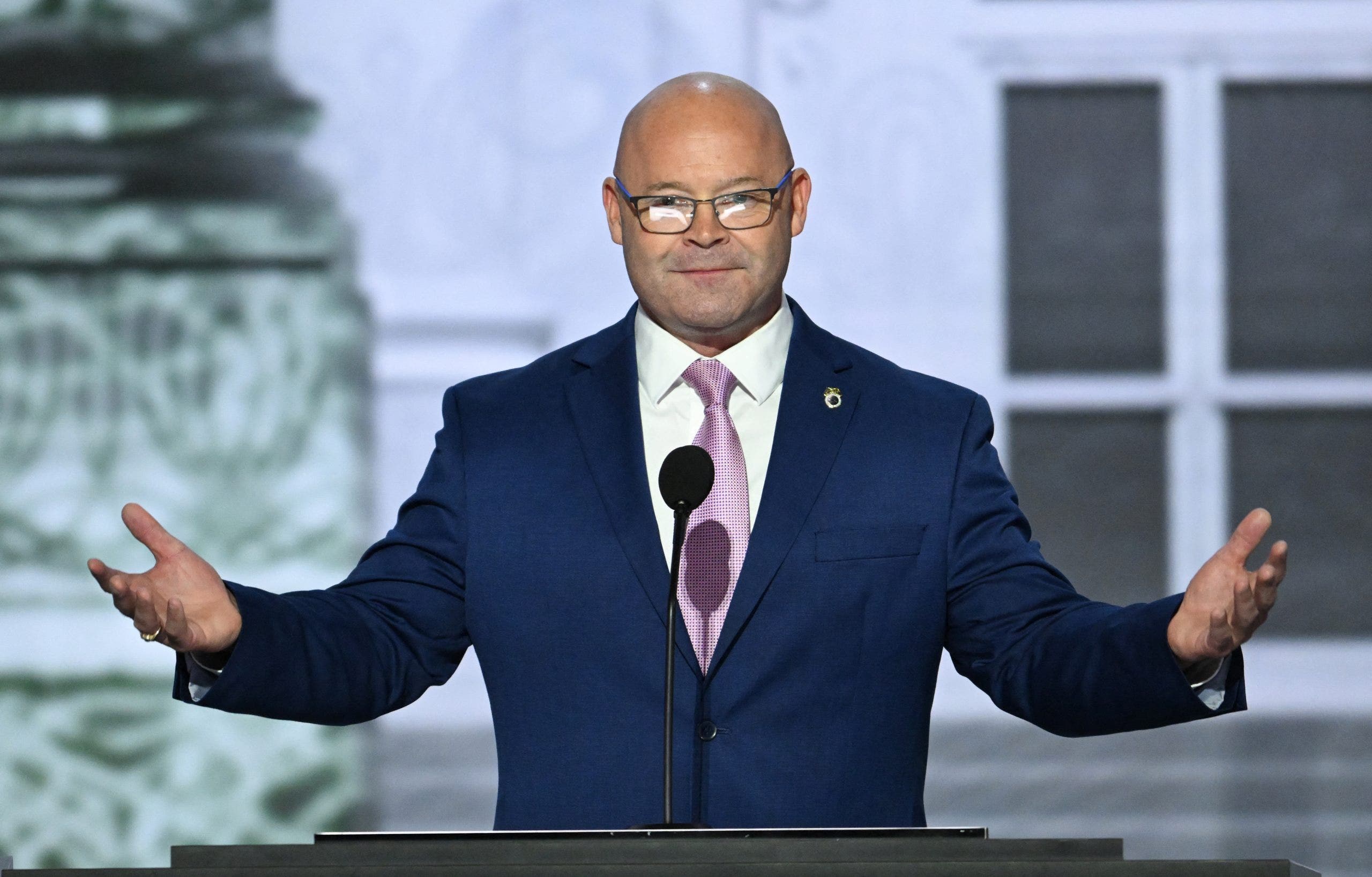Walmart, Target, and Albertsons alongside other grocery giants are all making a big change to their stores in California.
Governor Gavin Newsom has signed a law banning plastic bags being used at such stores in the state.
The change will take legal effect on January 1, 2026, and will affect all grocery stores.
Some grocery chains such as Whole Foods have already phased out plastic bags at their checkouts nationwide.
Consumers will be encouraged to bring their own bags to do their shopping, and those who do not will be offered a paper alternative.
The new law will only affect the plastic bags used at supermarket checkouts, not the plastic bags that contain produce.
Californians will soon be offered paper bags at the supermarket checkout
The change comes after a decade of hard-fought campaigning from politicians trying to outlaw the bags.
In 2014 a similar law was passed in California but it only outlawed thin plastic bags, leaving a loophole for stores to use thicker plastic.
Laura Deehan, the director of Environment California, told local news that the bags actually created more waste as shoppers did not reuse or recycle the thicker bags.
‘There was a sudden surge in these much thicker plastic bags,’ Deehan, who campaigned for the new law, told KABC-TV.
‘The grocery stores felt like they met the definition of a reusable plastic bag, but what we found is that they’re really not being reused at all.’
In 2004 Californians threw away an average of eight pounds of plastic every year, which increased to eleven pounds per year by 2021, a state study concluded.
The law ‘clearly needed a redo,’ Jenn Engstrom, of the California Public Interest Research Group told the Associated Press.
‘Plastic bags create pollution in our environment and break into microplastics that contaminate our drinking water and threaten our health,’ she explained.
‘With the Governor’s signature, California has finally banned plastic bags in grocery checkout lanes once and for all.’
The law also redefined what can be considered a recyclable bag.

Gavin Newsom introduced the US’s first plastic bag ban while mayor of San Francisco in 2007
As of 2028 only bags made from 50 percent or more recycled materials can be classified as recyclable.
Newsom has a long-history of fighting against plastic bag use, having introduced America’s first plastic bag ban in 2007 while mayor of San Francisco.
Now hundreds of cities across 28 states have their own plastic bag bans in place.
Some form of state-wide plastic bag ban now exists in twelve states, including New York.
The UK passed a law forcing supermarkets to charge for plastic bags in 2015, which led to a 98 percent reduction in their use according to the Department for Environment, Food and Rural Affairs.
Stores often face a backlash when they alter packaging to cut down on plastic use.
Earlier this year Costco began selling its $4.99 rotisserie chickens in soft plastic bags instead of the traditional hard-shelled plastic containers at its US locations.
The redesign uses 75 percent less plastic and cuts the use of 17 million pounds of resin a year, according to Costco.
But shoppers were quick to complain that the new design causes a mess in trollies, cars and fridges – as it allows meat juice to leak out.





























